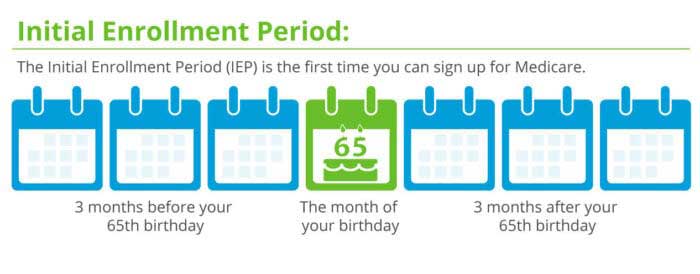Who is eligible for Medicare?
All US citizens become eligible for Medicare when they turn 65. Non-citizen permanent residents are eligible at 65 also, provided they have lived in the country for at least five years.
If you are under 65, you might qualify for Medicare if:
- You are permanently disabled and have received Social Security Disability benefits for at least 24 months
- You have been diagnosed with end-stage renal disease (kidney failure)
- You have been diagnosed with Amyotrophic Lateral Sclerosis (Lou Gehrig’s disease) and are receiving Social Security Disability benefits
As with most large, complex government programs, Medicare can seem a bit overwhelming at first. That’s why we’ve created this guide to help you navigate the application procedure, annual enrollment, and more.

When should you apply for Medicare?
You become eligible for Medicare when you turn 65 years old. However, if you have already claimed Social Security benefits at that time, you will be automatically enrolled in Medicare on your 65th birthday. You will receive Medicare Parts A and B. To enroll in other Medicare programs, such as Part C (Advantage) or Part D (prescription) you must meet with an insurance professional to elect those benefits.
Those who have not already begun to draw Social Security benefits will need to apply for Medicare when they turn 65. The Initial Enrollment Period (IEP) begins three months before your 65th birthday, lasts throughout the month of your birthday, and then for three months after that. So, you have seven months in total to complete the enrollment process.
There is one exception to the above rule: If your birthday falls on the first day of the month, your IEP will begin one month earlier.
Yes, you should apply for Medicare at age 65, even if you aren’t claiming your Social Security benefits yet. In fact, you must apply for Medicare during this initial enrollment period. Otherwise, if you sign up later you will face higher premiums for the rest of your life. Only under very specific conditions can you delay enrollment without incurring a penalty.
What if you miss the Initial Enrollment Period?
The Medicare General Enrollment Period, from January 1 to March 31 each year, allows those who missed their IEP to enroll in Medicare.
Aside from qualifying for a Special Enrollment Period due to a life event, this is your only chance to apply for Original Medicare after your Initial Enrollment Period.
When you sign up for Original Medicare during the General Enrollment Period, your coverage will begin on the first day of the month following your enrollment. For example, if you enroll on February 3rd, your coverage would start on March 1.
Important Note: The General Enrollment Period is not a “safety net” for missing your IEP. This enrollment period should only be used as a backup if you miss your Initial Enrollment Period. Late penalties could apply if you enroll during the General Enrollment Period, so make sure you budget for those additional fees.
Medicare AssistantNo-cost assistance with your Medicare enrollment and benefits.
- To speak with a licensed agent, call (602) 773-6886
(TTY 711 M-SU, 8am-8pm)
- Doug: 7013833 | Cynthia: 20003624
- 8506 W Deer Valley Rd. Suite 100
Peoria, AZ 85382
and
1150 Springhurst Dr. Suite LL205
Green Bay, WI 54304
Have You Watched Our Medicare Essentials Video Quick-Course?
This video tutorial covers the basic elements of Medicare in a format that is easy to understand and you can watch it from the comfort of home! It’s yours at no cost and no obligation, just tell us where we should send it!
Get Free Medicare Assistance
Friendly, licensed professionals are available to answer all of your questions. Call (602) 773-6886 or complete the form below and we’d be happy to reach out to you.
